 I always go to my in-laws for Thanksgiving, which is a lot of fun. It is a big group event, with lots of cousins, grown children and seniors. We can sometimes have up to 20 at any given Thanksgiving family meal. There is a lot of energy, but also a lot of noise, with people all talking at once and kids laughing and joking in the background. This is a great recipe for family fun, unless you have a hearing loss. The general noise level makes it hard to hear, and the multiple conversations going at once, makes it hard to follow any of them. Older men often speak very quietly (at least it seems that way to me!) Plus, children can be notoriously difficult to hear, and rarely remember to look at you when they are talking. But let’s NOT let this be a recipe for disaster! I have been thinking about how to make the most of the holiday and these are my tips. I hope they help. Please let me know your suggestions in the comments. Living With Hearing Loss’s Tips to Survive and Thrive at Thanksgiving Dinner 1. Sit in a good spot: For me, it is very helpful if I have a wall behind me and am seated more in the middle of the table. This gives me a better shot at hearing more conversation and not being distracted by background noise behind me. Maybe you have a spot you like better. Don’t be shy about talking to the host so that your seat is in an opportune spot for you. 2. Keep background noise down if possible: I try to keep any background music to a minimum. While your host, may like to play music a little more loudly, perhaps you can ask him or her to keep the volume low during dinner. 3. Converse with those next to you: Don’t try to participate in conversations across large distances. If you would like to talk with someone, move closer to him, or ask that you continue the conversation when you have a chance to be closer together. 4. Wear your hearing aids: Many of us hate to wear our hearing aids, but they really can help. Experiment with a couple of different settings to find what is optimal. You can even practice at home if you don’t want to spend time experimenting at the event. 5. Try other technologies: There are many new technologies now available that can help you hear in a group setting including personal FM systems or other one to one communication devices. Some of my friends swear by these. 6. Have reasonable expectations: You probably won’t hear everything that everyone says, but that is ok. Enjoy talking to the people near you, then seek out others to talk with during other parts of the party. You might even suggest to the host that people rotate seats for desert. 7. Bring your sense of humor: It can be hard to keep it all in perspective during the holidays when you feel like you are missing out on the fun, but try to laugh a little and be grateful for the wonderful friends and family around you. You may not hear every word they say, but you can partake in all of the good feelings around the table. Try to enjoy the moment. Readers, do you have any tips for tackling Thanksgiving dinner when you have a hearing loss? Written by: Sheri Eberts at livingwithhearingloss.com
0 Comments
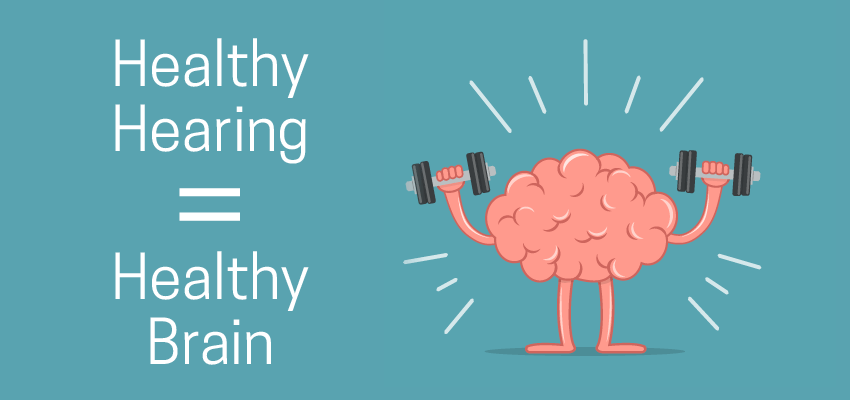 Hearing loss is frustrating for those who have it and for their loved ones. But recent research from Johns Hopkins reveals that it also is linked with walking problems, falls and even dementia. In a study that tracked 639 adults for nearly 12 years, Johns Hopkins expert Frank Lin, M.D., Ph.D, and his colleagues found that mild hearing loss doubled dementia risk. Moderate loss tripled risk, and people with a severe hearing impairment were five times more likely to develop dementia. The Links Between Hearing and Health “Brain scans show us that hearing loss may contribute to a faster rate of atrophy in the brain,” Lin says. “Hearing loss also contributes to social isolation. You may not want to be with people as much, and when you are you may not engage in conversation as much. These factors may contribute to dementia.” As you walk, your ears pick up subtle cues that help with balance. Hearing loss mutes these important signals, Lin notes. “It also makes your brain work harder just to process sound. This subconscious multitasking may interfere with some of the mental processing needed to walk safely.” Hearing Aid Myths That Hold You Back Can hearing aids reduce these risks? Lin hopes to find out in a new study, still in the planning stages. “These studies have never been done before,” he notes. “What we do know is that there’s no downside to using hearing aids. They help most people who try them. And in those people, they can make all the difference in the world—allowing people to reengage with friends and family and to be more involved again.” Although nearly 27 million Americans age 50 and older have hearing loss, only one in seven uses a hearing aid. If you think your hearing has diminished, it’s worth making an appointment with an audiologist for a hearing check, Lin says. If you have hearing loss, don’t let the following myths keep you from getting help. “My hearing’s not that bad.” Hearing aid users wait, on average, 10 years before getting help for hearing loss. But during that time, communication with loved ones becomes more difficult, and isolation and health risks increase. “Our findings emphasized just how important it is to be proactive in addressing any hearing declines over time,” says Lin. “Wearing hearing aids means I’m old, and I’m not ready for that.” It’s normal to feel worried that hearing loss means you’re aging—and to want to hide it. Plenty of people with a hearing impairment sit silently rather than joining in conversations and activities, because they fear that hearing problems will make them seem helpless or less than competent. The truth: Connecting with others can help your brain stay younger and keep you involved with life. “I don’t like the way hearing aids look.” Forget the old days of big, whistling earpieces. Today’s hearing aids and cochlear implants are smaller (and less conspicuous) than ever before. Even celebrities (like former president Bill Clinton and football Hall of Famer Mike Singletary) are wearing them proudly. “I heard that hearing aids are difficult to use.” There is a breaking-in period as you—and your central auditory system and brain—adjust to life with hearing aids. That’s why most doctors and hearing centers include a trial period, so you can be sure the type you’ve chosen—whether it’s a miniature behind-the-ear model or one that fits into your ear—is right for you. “Hearing aids cost too much.” At present, very few states require health insurers to cover the cost of hearing aids for people of all ages. As a result, 61 percent of users pay the bill themselves. At an average price of $1,675 per ear for equipment, fittings and evaluations, hearing aids can take a bite out of your budget. Factor in the high cost of hearing loss, however, and it is money well spent. Definitions Social isolation: Loneliness that can affect health. People who are socially isolated have little day-to-day contact with others, have few fulfilling relationships and lack a sense of belonging. Social isolation can increase the risk for poor eating, smoking, alcohol use, lack of exercise, depression, dementia, poor sleep and heart disease. Dementia (di-men-sha): A loss of brain function that can be caused by a variety of disorders affecting the brain. Symptoms include forgetfulness, impaired thinking and judgment, personality changes, agitation and loss of emotional control. Alzheimer’s disease, Huntington’s disease and inadequate blood flow to the brain can all cause dementia. Most types of dementia are irreversible. Cochlear (koe-klee-er) implant: A device implanted into the inner ear to stimulate the auditory (hearing) nerve. It’s used to help restore sound perception in children and adults with profound hearing loss. https://www.hopkinsmedicine.org/health/wellness-and-prevention/the-hidden-risks-of-hearing-loss 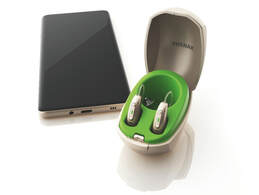 For many people, buying and replacing batteries is a part of using hearing aids. However, rechargeable batteries are changing the way we interact with hearing aids. Rechargeable hearing aids are a fairly recent and welcome addition to the hearing healthcare landscape. In the past, rechargeable batteries didn’t provide enough power in a small enough battery to be feasible for use in hearing aids but the days of regularly changing your battery are coming to an end. Depending on your hearing aid model and level of usage, your old standard zinc air replaceable batteries will need to be changed every three to ten days. Most hearing aids give you a signal when the battery is about to die. Recently, though, thanks to lithium-ion technology, rechargeable batteries are not only available, they are also long lasting and reliable for use in hearing aids! You’ll Never Want to Go Back The days of changing your battery every 3-10 days are over. Rechargeable batteries provide confidence and certainty to the wearer that their battery will be ready to use each morning after a night’s charge and hold a charge throughout the day. Just like you would charge your mobile devices overnight, the same practice takes place with a rechargeable hearing aid. You will never miss or pause an important or special moment due to having to change a battery when using rechargeable hearing aids. The personal benefits of rechargeable hearing aids depend on your preferences and lifestyle. However, the use of lithium-ion batteries is creating a world of possibility for hearing aid manufacturers and wearers alike. So, while you might find some of these benefits rewarding, others might not yet see value in going rechargeable. If you’re curious about what it means that rechargeable hearing aids have finally arrived, here are some serious benefits to using lithium-ion rechargeable batteries. No Extra Costs When hearing aids use replaceable batteries people often spend up to $100 per year on disposable batteries. You will never have to worry about not being able to get more hearing aid batteries or deal with shipping and handling costs. With rechargeable batteries the battery is built into the unit, and they can be recharged as many times as you need. Don’t Be Caught Off-guard Once you establish a routine, you’re less likely to get caught off-guard with a dead battery on the go. All you have to do is plug in your hearing aid in every night the way many people already plug in their smart phone when they go to sleep at the end of the day. Disposable zinc-air batteries don’t offer the same protection. They can run out anytime, with little warning beforehand. You will no longer have to carry backup batteries everywhere you go or worry about them running out. Better Performance in Cold Weather Zinc-air disposable batteries struggle to function properly in cold weather. The lack of moisture and low temperature zaps the batteries power quickly, draining your hearing aids and causing issues with the sound quality. Rechargeable hearing aids are becoming extremely popular in areas that experience extreme winters since they’re more cost effective and easier to use. Lithium-ion batteries suffer little to no loss in cold weather. Environmentally Safer While it’s important to state that lithium-ion batteries must be properly disposed of when you get rid of your hearing aids, they can also be recharged thousands of times. Compared to zinc-air batteries, which can only be used once and tossed out and end up ultimately in landfills. More Accessible for Older Users Many older wearers complain that the process of buying and replacing batteries is taxing on them. They might not have the means necessary to run to the pharmacy and buy batteries, and those with motor-control issues might struggle to open the battery compartment. With rechargeable hearing aids, this troublesome process is completely cut out. Energy Efficient A fully charged Lithium-ion battery can last the entire day, which is 19 hours of battery life. Instead of buying more disposable batteries, you can simply put your hearing aids in their charger at the end of the day. By: Dr. Timothy Teague, AuD at www. hearingconsultants.com Dr. Teague earned his Bachelor of Science Degree in Hearing, Speech and Language from Ohio University and his Doctoral Degree in Audiology from The University of Louisville. He is an active member of the American Academy of Audiology and the Ohio Board of Audiology.  Are you worried about your hearing? Ask yourself the questions below to find out if you should have a hearing test. Do you have a problem hearing over the telephone? Do you hear better in one ear than the other when you are on the phone? Do you have trouble understanding when two or more people talk at the same time? Do people complain that you turn the TV volume up too high? Do you have to strain to understand what people say? Do you have trouble hearing in a noisy place? Do you have trouble hearing in restaurants? Do you ask people to repeat what they said? Do family members or coworkers tell you that you are not hearing what they say? Do many people you talk to seem to mumble or not speak clearly? Do you have trouble understanding women and children? Do people get annoyed because you don’t understand what they say? If you answered yes to any of the questions, it might be time to consider getting your hearing tested by a professional. To schedule a no charge hearing evaluation at our office call 731-388-3669  Successful communication requires the efforts of all people involved in a conversation. Even when the person with hearing loss utilizes hearing aids and active listening strategies, it is crucial that others involved in the communication process consistently use good communication strategies, including the following:
Article from: www.ucsfhealth.org It’s common knowledge that unresolved hearing loss can have an impact on stress and anxiety levels, but did you know it can affect your memory too? Memory loss is just one of the side effects of reduced hearing function, but it is one of the most important.
As well as having a significant impact on your confidence and day-to-day lifestyle, memory loss can often be misinterpreted as the onset of dementia. If you develop age-related hearing loss, for example, a subsequent reduction in memory function may not automatically be linked to hearing issues. However, there’s a good chance that your hearing loss is impacting your ability to retain and recall information. Does hearing loss affect your memory?Research has confirmed that hearing loss does have an impact on memory. In fact, it is believed that hearing loss can affect memory function in numerous ways. To understand why hearing function impacts memory, it’s important to look at the overall effect hearing loss can have on an individual. ConcentrationWhen you are experiencing hearing loss, you will need to concentrate much more simply to recognize sounds. If you have a conversation with someone, for example, your concentration is directed at deciphering what the person is saying and trying to understand it. This means the brain is less focused on actually retaining the information. Due to the increased concentration required to simply follow the conversation, the brain doesn’t store the information. Known as cognitive overload, the brain is too busy trying to listen to and interpret sounds to memorize the content too. Of course, when you try and remember the details of the conversation, the information simply isn’t there and so cannot be recalled. You may feel like you’re unable to remember what you’ve heard but, in fact, the brain hasn’t even got as far as storing the information. Due to this, you won’t have the data you need for the recall function in your brain to work effectively. While the mechanism is still functioning, the information isn’t there to process. IsolationUntreated hearing loss often leads to loneliness and isolation. A reduction in socializing is extremely common amongst people with unresolved hearing loss or tinnitus. When you’re isolated, your brain is exposed to fewer stimuli. As a result, it doesn’t need to work as hard and becomes less active. This can lead to structural changes and even cause the brain to shrink. Isolation means that your memory function is being exercised as often, which reduces its capacity. Naturally, this has a negative impact on its performance. When it comes time to recall information, the reduced functioning of your memory means it’s harder for you to remember things. Anxiety and depressionIf hearing loss isn’t treated effectively, it can increase the risk of developing emotional and psychological and issues. Many people find that hidden hearing loss has a negative effect on their mental health, with a significant number of individuals experiencing increased anxiety and depression. Studies into depression have shown that it can change the way your brain operates. When depression impacts the memory, it means you are less able to retain and recall information on demand. To learn more about the connection between hearing function and memory loss, sign up for the Signia newsletter now. If you want to know whether hearing function could be affecting your memory, take the Signia hearing test today. Identifying hearing-related memory lossIf you’re experiencing memory loss, it’s important to seek medical advice. While people often consult their primary care physician regarding reduced memory function, it’s advisable to contact a hearing care provider too. A simple hearing test can assess your hearing function and determine whether you are experiencing any form of hearing loss. Even relatively mild hearing loss can cause cognitive overload, which means people can experience hearing-related memory loss without having moderate or severe hearing problems. In fact, you may notice your memory loss before you’re aware of any reduction in your hearing function. As many people experience a reduction in hearing function gradually, it can take some time before it really has a noticeable impact on their day-to-day lives. While you may be aware of difficulties recalling information, you may not notice just how much you’re having to concentrate on following a conversation or listening to sounds, for example. This is one of the reasons why it’s so important to have routine hearing tests. By undertaking a non-invasive exam, such as a pure tone audiometry hearing test, your hearing care professional can confirm whether or not you’re experiencing hearing loss. If so, the type, configuration and severity of your hearing loss can also be assessed swiftly. Treating and preventing memory lossWhen memory loss is related to hearing function, it can typically be resolved quickly and easily. By wearing hearing aids, for example, you can enhance your hearing function. This prevents cognitive overload, as the brain no longer needs to work hard simply to pick up and interpret sounds. This enables your brain to process information normally and means the information is stored in your memory, ready to be recalled as and when it’s needed. In addition to this, wearing hearing aids greatly reduces the risk of social isolation. As you are able to continue with your usual lifestyle while wearing hearing devices, people are able to remain social and active. Similarly, hearing aids mitigate the effects of hearing loss, which means the risk of developing depression and anxiety are reduced. This ensures your brain isn’t subjected to the structural changes that can occur over time due to isolation, reduced activity and depression. As you are able to maintain your lifestyle, your memory function and brain are still being exercised. Due to this, your ability to interpret, store and recall information is unaffected. A hearing test and appropriate treatment can certainly help to combat existing hearing-related memory loss. However, there’s no need to wait until you start experiencing a reduction in memory function to consult a hearing care professional. By having regular hearing function tests, any potential hearing issues can be identified and resolved quickly, thus reducing the risk of related memory loss occurring. Article from signia.com |
AuthorJamie Martin, NBC-HIS Archives
September 2023
Categories |
Proudly powered by Weebly
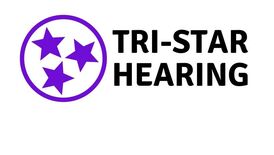
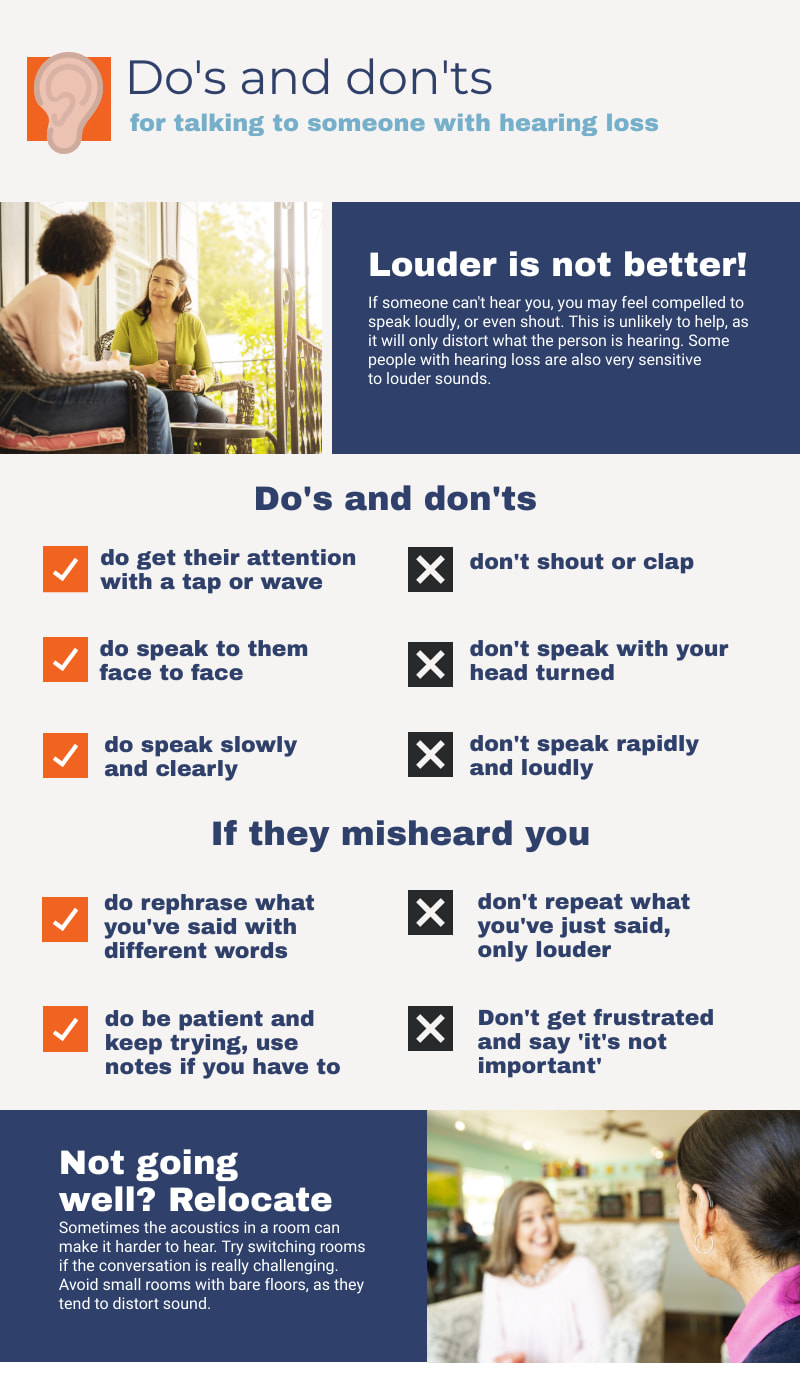
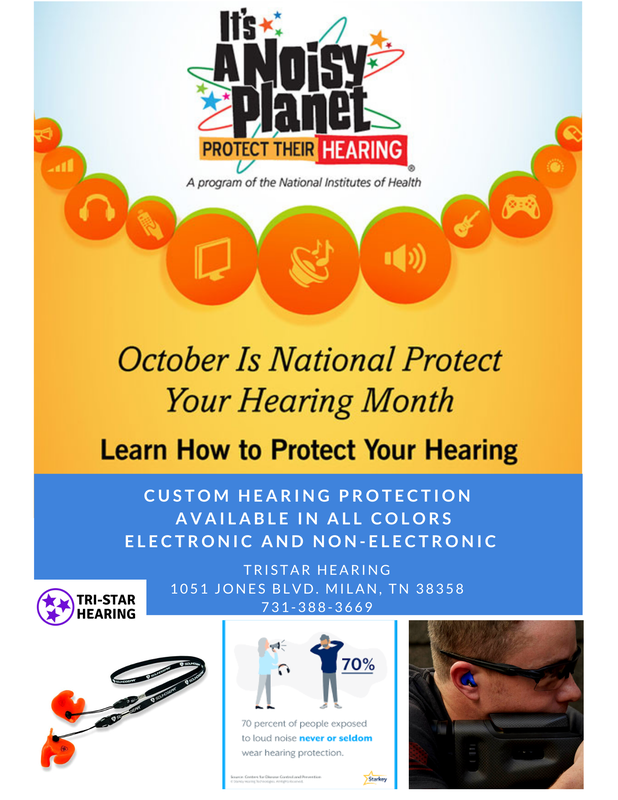
 RSS Feed
RSS Feed